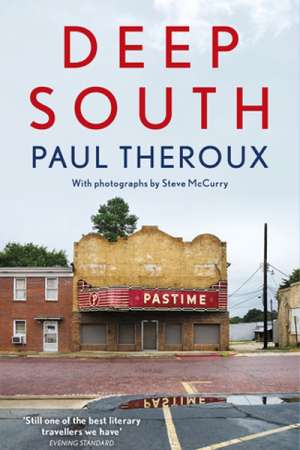America
News from the Editor's Desk - September 2016
Tuesday, 26 July 2016News from the the Editor's Desk in the September issue of Australian Book Review.
... (read more)Glenn Moore reviews 'Masters of Empire: Great Lakes Indians and the making of America' by Michael A. McDonnell
Michael McDonnell knew he had a bestseller on his hands. Historical biographies regularly top the New York Times bestseller list, and his research uncovered a larger than life figure named Charles de Langlade. Born in 1729 to an Indian mother and a French-Canadian father, Langlade grew up straddling two cultures, but that did not stop him from becoming a le ...
The streets of New Orleans double as scented gardens for the blind. Round any corner in the Vieux Carré – known to most as the French Quarter – and experience the assault of sensory details. It might start with a spicy tang of boiling seafood, crawfish, or shrimp or crabs plucked from the amphibious Louisiana land. Maybe it's frying beignets or praline mixture ...
Glenn Moore reviews 'The Half Has Never Been Told' by Edward E. Baptist
There is something pleasurable about a good American history book. I recall reading David Hackett Fischer's Paul Revere's Ride (1994) on a train journey from Boston to Washington. I read it not because I was teaching about Paul Revere, but because it was a fine work, true to a tradition in which, as Fischer put it, books 'are a sequence of stories, with hig ...
The traveller, as V.S. Naipaul describes that role in A Turn in the South (1989), 'is a man defining himself against a foreign background'. Over the past forty years, Paul Theroux has built his career writing books, nearly fifty novels and travelogues, to become an exemplar of that definition. He seeks always to go farther and deeper, often journeying, to b ...
Dennis Altman reviews 'Rendezvous with Destiny' by Michael Fullilove
Michael Fullilove, head of the Lowy Institute, has written about President Roosevelt and the men who helped him to guide the US so reluctantly into World War II. Dennis Altman reviews this model of academic research.
... (read more)Alison Broinowski reviews 'The Untold History of the United States' by Oliver Stone and Peter Kuznick
It is ten years since the invasion of Iraq by the United States and the few countries willing to join it. Happening to be in Washington in February, and recalling worldwide protests in 2003, I was struck by what seems to be American amnesia about the war and its consequences. At least in Australia groups are exploring ways to prevent such catastrophic expeditions in the future. Even as Afghanistan follows Iraq towards a similar conclusion, the US government’s war mentality is kept alive by contestation with China, eyeballing of North Korea, countdown over Iran, nervousness about Syria, demands for more military spending, and war hunger in sections of the media. Americans’ nerves are further strained by domestic threats like cyber-infiltration, extreme weather, and mass killings, against which conventional defences seem powerless. Past wars don’t end all wars.
... (read more)'Signs and portents: The outlook for America in Obama’s second term' by Morag Fraser
November in America signals a time to gather in, take stock and breathe a little. The elections are done by the end of the first week. Thanksgiving beckons, the high holidays begin, media fever subsides – a little – and morphs into retrospective political analysis and projected anxiety about the future, especially, since 2008, the economic future.
... (read more)Peter Heerey reviews 'The Years of Lyndon Johnson: The passage of power' by Robert A. Caro
In Australia today, Lyndon Baines Johnson (1908–73) seems a fleeting figure on history’s stage: a brief interlude between Kennedy’s Camelot and Nixon’s Watergate – ‘All the way with LBJ!’ – the retreat from quagmire Vietnam – and that’s about it. So how does one justify buying and reading Robert A. Caro’s seven hundred-page book (dubbed ‘bloated’ by one critic), the fourth in a five-volume biography?
... (read more)The Princeton Post Office, as befits this famed university town, has a certain grandeur. It is small – Princeton is a village after all – and modest in its proportions, but grand in aspiration. As you step through its panelled doors your gaze is drawn by the long parade of milk-glass and bronze lights towards the mural that adorns the far wall. Like the White House murals, it is lofty, but almost domestic in its depictions of American history, American hope, American mythology.
... (read more)






